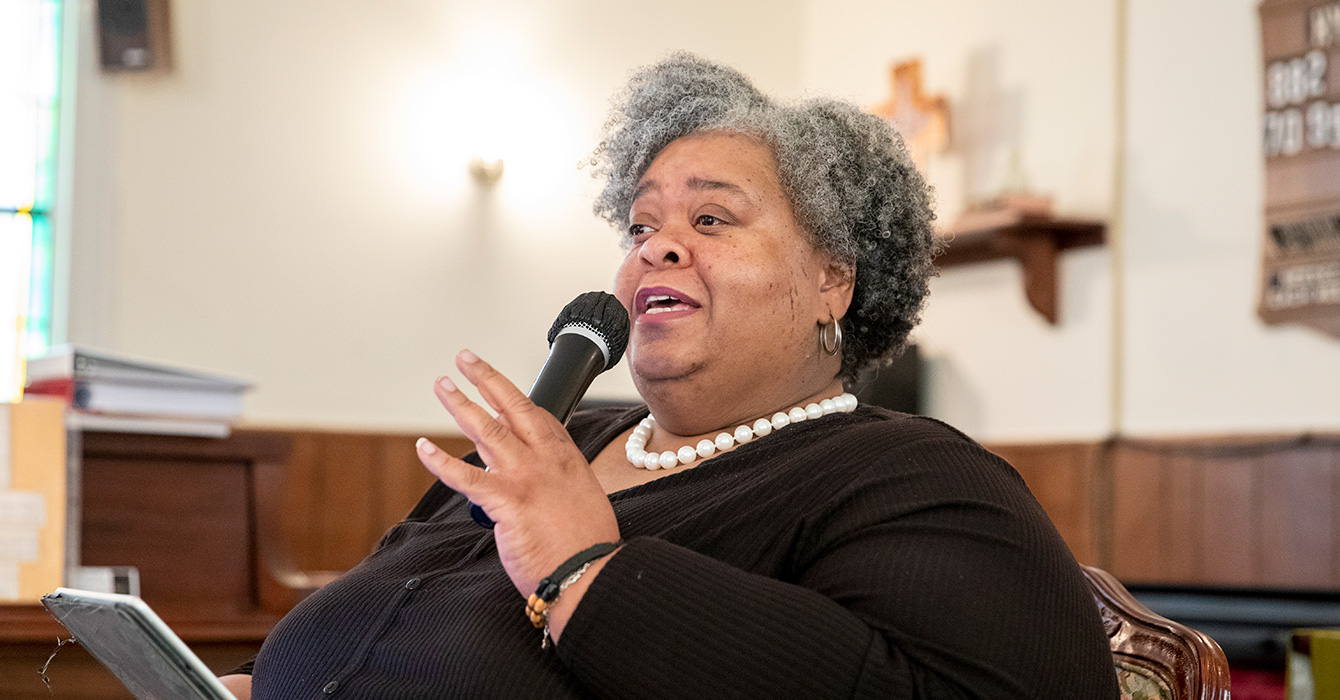My first job in the church was “janitor.” At 16, I was hired by McKinley Methodist Church in the hills of East Tennessee to clean, dust, stoke the furnace and mow the grounds, including the cemetery. That last task was the hardest. In the days before weed eaters, trimming grass by hand from around dozens of tombstones was back-breaking work. And getting up at 4:30 a.m. on cold winter Sundays to light the furnace was no picnic. As janitor, I had to be first at the church and last to leave. Waiting around to lock up regularly tested my patience.
Looking back a half century later, however, I realize that job was the start of a lifelong process of discipleship and leadership formation. It gave me knowledge and habits that later proved invaluable: Being first to arrive and last to leave; wrestling control of a thermostat; balancing commitment to those in the cemetery with those in the pews; paying attention to the cleanliness of the floors and the height of the grass; and accepting that church pay seldom equals the value of work performed. All good things for a pastor or bishop to know.
Admittedly, my motivation was never a desire to be formed for church leadership. I was in it for the money, $16 a month. Yet that job was the soil in which my call to ordained ministry was planted and took root. An experience filled with prevenient grace, it still motivates and shapes my life and ministry.
As a church janitor, I first connected my work with God. The pastor, John Bacon, helped me see that I wasn’t just cleaning floors or mowing grass. I was “taking care of God’s house.” Though I had not yet linked my baptism with vocation and had never heard of the missio Dei, I knew that God cared how well I cleaned the church and kept the cemetery. It was my first hint that a sense of calling and connection with God’s mission are fundamental to church leadership.
Being a janitor gave me my first taste of theological reflection. It was a wedge that cracked open my understanding of salvation itself. Rather than being primarily about the forgiveness of personal sins, salvation, I began to suspect, was about much more, even the healing of the entire cosmos. John and the members of that country church taught me that God cares about issues big and small. The God who is concerned with war, poverty, disease and salvation is the same God who uses a boy’s lunch to feed a multitude, marks the sparrow’s fall and honors faithfulness in small responsibilities. Mopping floors and washing windows fit into God’s mission.
In valuing my work, the church also taught me that wisdom, insight and ministry gifts are found at all levels, even among those without authority, position or power. In a hierarchical world, leadership is almost always top down, vested in those with titles, positions, degrees and clout. Although janitors are near the bottom of any organizational chart, at McKinley Methodist I was more than the shy kid who took care of the building and grounds. They elected me to the board, invited me to help teach vacation Bible school and asked me to make an announcement during Sunday worship -- my first time speaking before a crowd, all 75 people.
To this custodian, church really was the body of Christ in which the members “that seem to be weaker are indispensable” and the “less respectable members are treated with… respect”(1 Corinthians 12:22-23). The son of a farmer and millworker, I learned from John that God notices the poor, defends the powerless and calls the nobodies. He taught me that a janitor’s basic identity is in the imago Dei long before I could pronounce the term. Whether supervising my work or encouraging me to be a youth leader, he was mentoring me as a child of God and a future pastor. Over the years, he helped me understand that ministry is not a ladder to climb but an identity and a mission.
My custodial experience also helped me as a pastor and bishop to avoid the common leadership trap of becoming isolated, working in a bubble. I learned early that insight and wisdom can come from the most unexpected places. As a janitor I was privy to conversations and messages that were never heard or seen by the designated leaders. Amazing items end up in the trash. Worshippers leave behind notes and comments written on church bulletins and offering envelopes. A church janitor can’t help but overhear critiques of sermons and leadership decisions. Whatever I overheard, I kept to myself, but as a pastor I always tried to get insight and perspective from as broad a circle as possible, including the custodial staff.
All leaders need to have a “balcony view” of their organization, one that enables them to see a broad perspective. But I discovered as a custodian that the “basement view” is also essential. Unless you can see from the underside, the entire structure may crumble from unseen and unattended problems. It was in the basement, in the furnace room, that I noticed and was able to prevent further damage from termites in the joists, a leaking water pipe and frayed wiring. Leaders need both balcony and basement perspectives. Life only on the balcony without attention to the foundation will eventually result in collapse; a basement without a balcony becomes a tomb.
Being a janitor also taught me hard lessons about life in Christian community. You really can’t please everyone. People disagree about everything from the temperature of a room to the height of the grass, the color of the paint to the quality of the sermon. Therefore, whoever is responsible, whether for the sermon or the paint, will be criticized and praised. Both reactions are confusing, seductive and perilous. At first I didn’t understand when one church member would complain that the sanctuary was too hot, while another complimented me for ensuring the perfect temperature. In the same way, they criticized and praised the sermon every week. Clearly, I could not rely on criticism and praise as infallible guides. As a custodian, I first prayed what would later become a daily prayer: “O God, don’t let me be distracted from your mission either by criticism or praise.”
Conflicts, of course, are part of life in any community. At McKinley Methodist, as in most churches, the fights were never about big issues such as race, sex, war or politics. They were about paint colors, the length of services, locking the doors during the week and cleanup after the annual picnic. I could not understand why people got upset over such things until a wise member explained it to me: “Just remember. What people fight about isn’t always what they are mad about.” As a pastor and bishop, I realized the depth of his insight as I began to understand that everyone carries unresolved internal conflicts that spill over into community. Leadership requires the ability to see beneath conflicts to the deeper hurts and struggles.
Finally, however back breaking it was, tending the cemetery put me in touch with a profound reality, the implications of which continue to be revealed. The Christian community includes more than those who sit in the pews. Repeatedly reading the names and epitaphs of those who settled that region and who founded McKinley Methodist Church made them almost as real to me as the people who sat in the pews and led the church.
Whenever I needed a break from mowing, I would sit among the tombstones and wonder about the people buried there. What had they fussed about? What would they think of the church now? Would they approve of my work? I don’t recall being aware of Hebrews 12 and its description of being “surrounded by so great a cloud of witnesses.” Neither did I know anything about “the communion of saints.” But I did have a sense that I was part of a community of people that spanned time and space. And, yes, I knew my work mattered to them.









